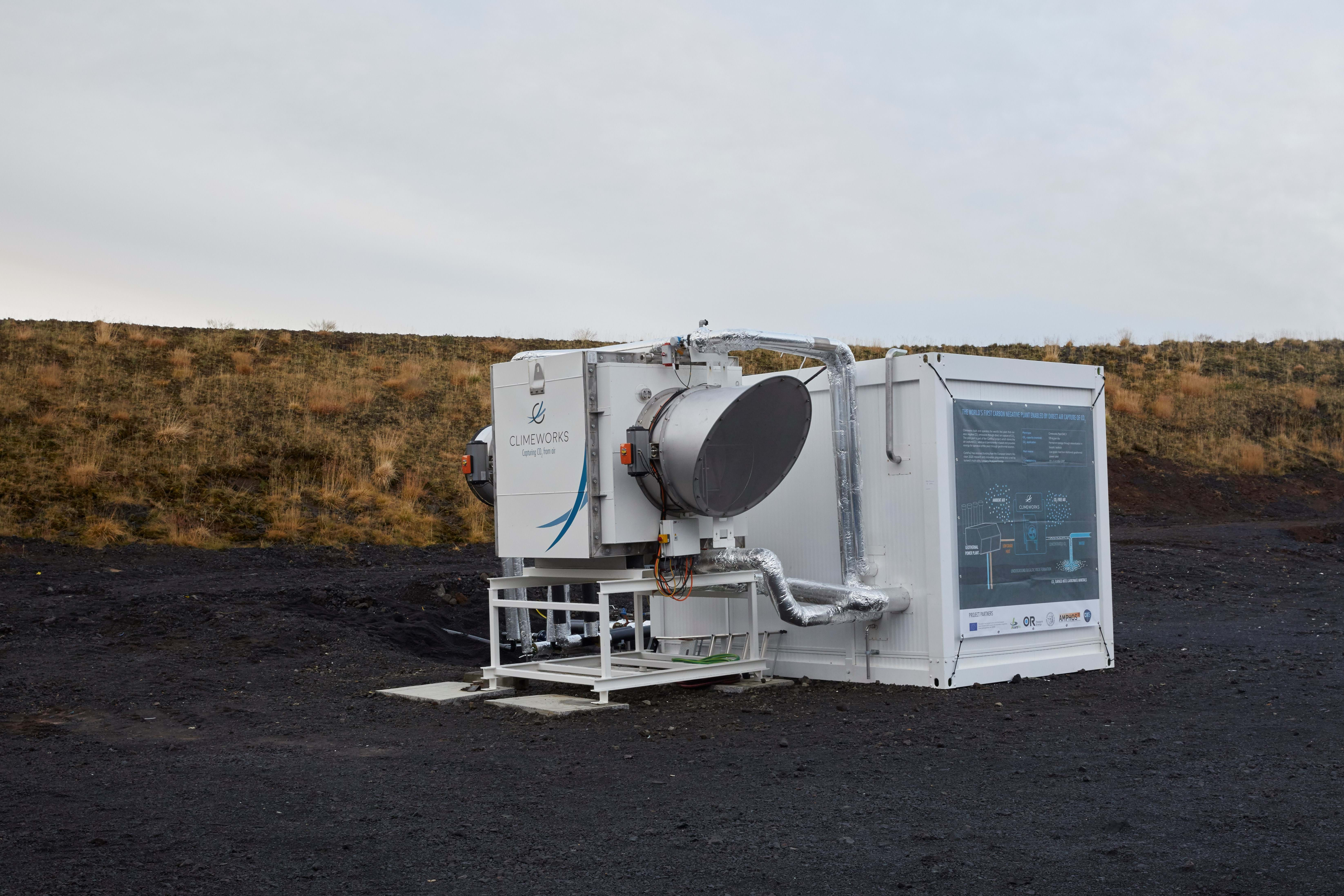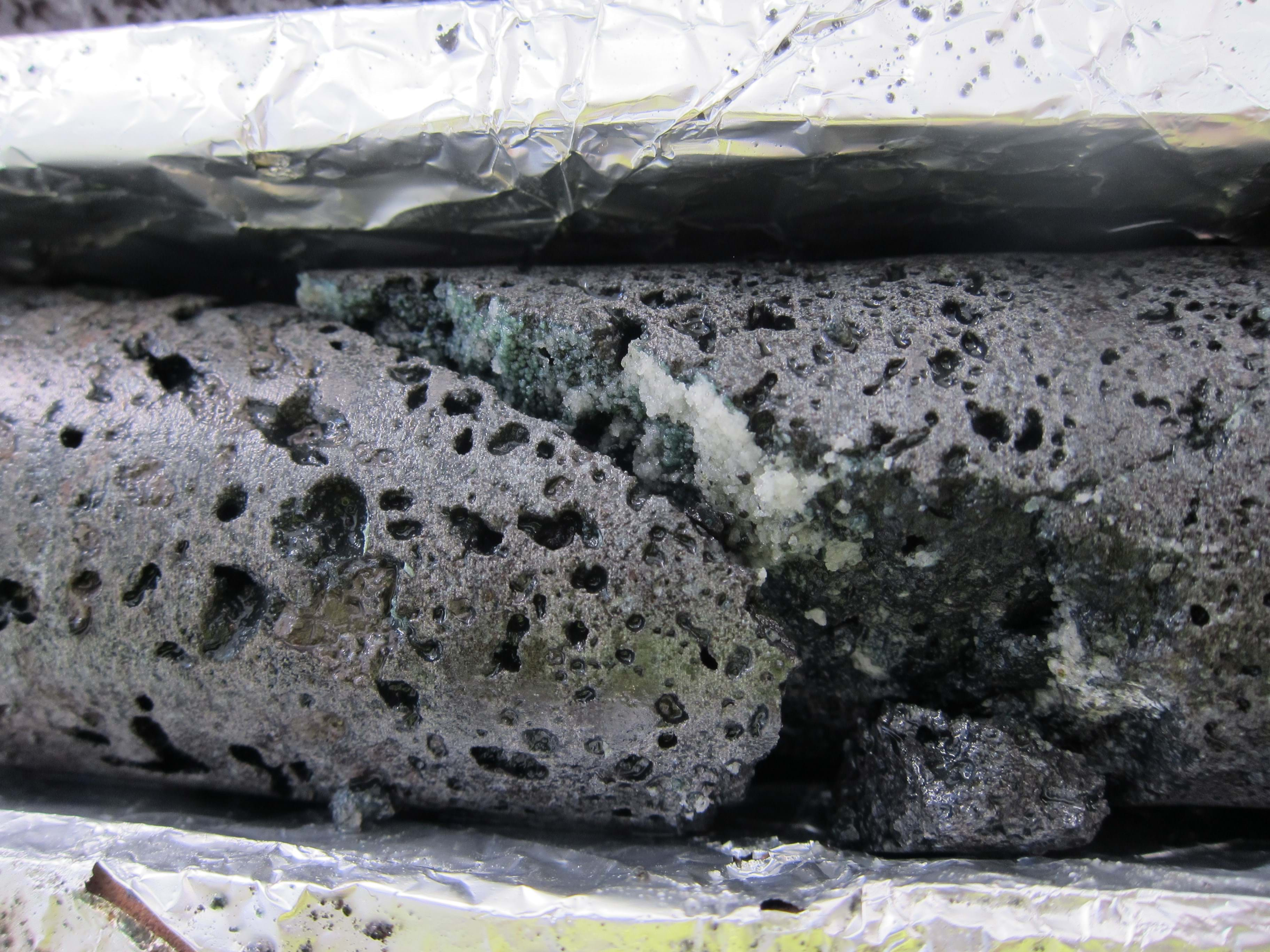Climeworks opens direct air capture plant in Iceland
CLIMEWORKS has opened a new plant in collaboration with Reykjavik Energy in Iceland to capture CO2 from ambient air and store it permanently underground as minerals in basalt rock formations.

Swiss company Climeworks has previously demonstrated its direct air capture (DAC) technology in Hinwil, Switzerland where it installed a DAC plant on the roof of a waste incineration plant. The captured CO2 was piped to commercial greenhouses 400 m away to boost salad crop growth. Climeworks says that the new CarbFix2 project in Iceland is the first in the world to combine DAC technology with permanent geological storage.
The DAC plant has been installed at the Hellisheidi geothermal power station in the west of Iceland. Fans draw air into the module and through filters modified with amines, to which the CO2 chemically binds. CO2 can be released from the filters, which can be used for several thousand cycles, by heating them. At Hellisheidi, they use low-grade heat from the geothermal power station. The plant can capture 135 kg/d of CO2.
The concentrated CO2 is then subject to the CarbFix process to permanently store it. Edda Sif Aradóttir, CarbFix project leader at Reykjavik Energy explained that the CO2 is first dissolved in water under pressure. It is then injected into basaltic rock formations 700 m below the ground. As the CO2-laden water is pumped into the basalt, calcium, magnesium and iron dissolve out of the basalt and into the water. These metals react with the CO2 to form solid carbonate minerals.

Aradóttir says that the process is quite water intensive. At 25˚C and 2,500 kPa of pressure, 1 t of CO2 will dissolve into 25 t of water. However, the water does not have to be fresh. Seawater and wastewater are also suitable, and some of the water can be recirculated. The capture and injection cost is below US$30/t. Basalt is found around the world, including in India, the US, Russia, and under the ocean floor. In theory at least, if not in practice due to economic and practical feasibility reasons, Aradóttir says that they have calculated that there is enough basalt in the world to mineralise all the CO2 from all the fossil fuels being burned on earth. The technology has a lot of potential.
“We have developed CarbFix at a unique location here in Iceland and proved that we can permanently turn this greenhouse gas into rock. By imitating natural processes this happens in less than two years. By integrating the Climeworks and CarbFix technologies we create a solution that is deployable where we have basalt but independent of the location of emissions. This is important to scale up the CarbFix approach on a global level,” said Aradóttir.
Carbfix2 has been funded by the EU’s Horizon 2020 research and innovation programme. The other project partners are the University of Iceland, CNRS (the French National Centre for Scientific Research), and Spanish environmental consultant Amphos 21.
Recent Editions
Catch up on the latest news, views and jobs from The Chemical Engineer. Below are the four latest issues. View a wider selection of the archive from within the Magazine section of this site.




